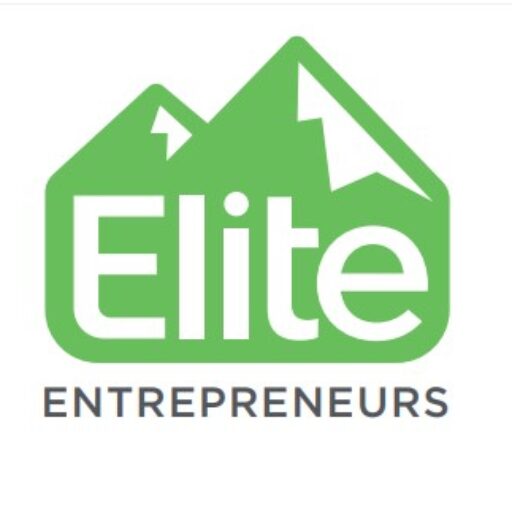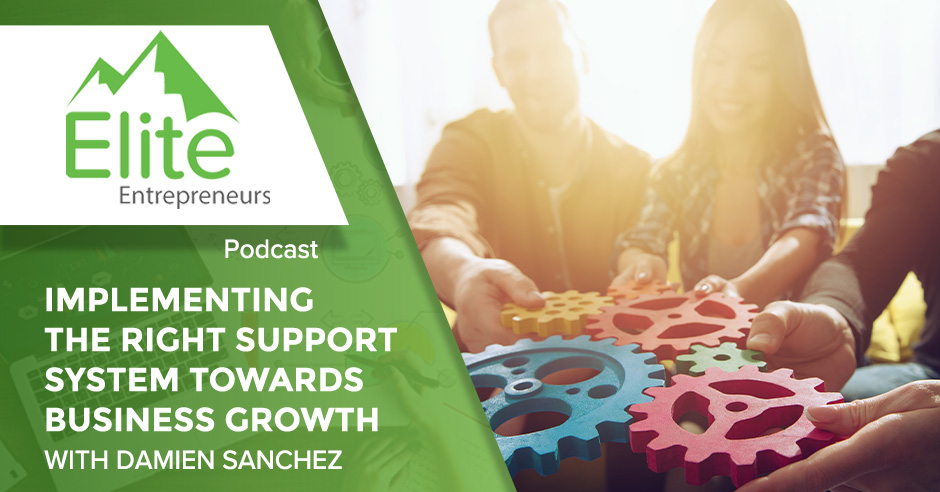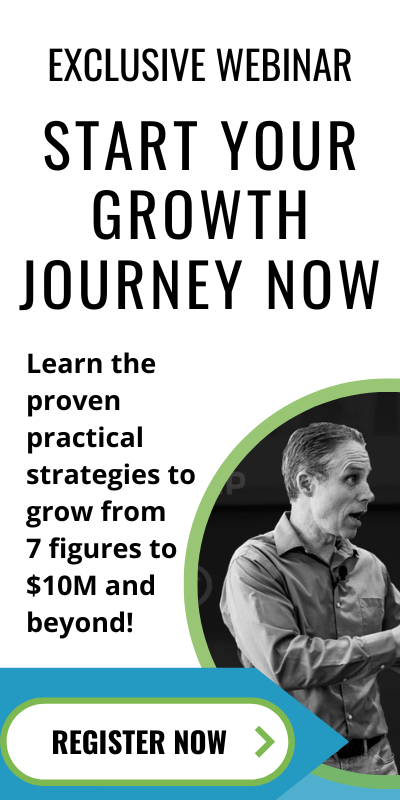Episode 135: Implementing The Right Support System Towards Business Growth With Damien Sanchez
Watch the episode here
Listen to the podcast here
The only problem with achieving stellar business growth is eventually outgrowing it. To keep the momentum going, you must go beyond your usual strategies and start implementing a flexible support system. Brett Gilliland sits down with Damien Sanchez of Sterling Lighting who shares how he stopped being the bottleneck to success by delegating work to his team. Damien explains how letting go inspires others to be accountable and transforms adversity into a powerful asset. He also talks about embracing an ROI-driven mindset to secure consistent growth instead of operating out of scarcity.
—
I get to bring exciting guests every single week to spend some time with me talking about typically their seven-figure growth journey. Our guest is no exception. Damien Sanchez is a multiple business owner. He owns a Mosquito Squad franchise in the greater DC area. He’s also the Cofounder of a company called Sterling Lighting. They provide lighting products and solutions for the outdoor lighting industry. Damien, welcome to the show.
Thank you for having me.
I’m thrilled to have you here. We have known each other for quite some time now. I didn’t do the math before this but I remember way back when we first met, your Mosquito Squad franchise had passed that seven-figure mark. I got to know you and Pat, your cofounder for Sterling Lighting. You were trying to figure out how to take those two businesses to the next level. That’s when we met.
You were working for Infusionsoft. We signed up in 2011. It was the year we hit $1 million in my franchise. It’s funny to think about it. From 2010 to 2011 was the transition time when I was using paper as a CRM. I had file cabinets. We had 1,000 customers. It was a mess because whenever we would document things, we would be pulling a file. I had tons of people. That’s when we switched over to using a CRM and going online that we were able to finally streamline and hit the million-dollar mark. We got to do some interviews with Clate and you for Infusionsoft.
I had gotten to about $2 million in gross sales by 2014 in the mosquito control company. We were struggling. It was rapid growth. I knew I was a bottleneck. I didn’t know what to do. I don’t remember if it was you and Clate but you were up there at ICON talking about this thing called Elite Forum and how it was going to be life-changing. You had some people come up there. I’m like, “I have to do this because I have no idea what I’m doing.” It was a great move on our part to get started with that and start pushing toward that $3 million mark.
This isn’t intended to be a plug for Elite. We will leave that aside. Let’s talk about some of the things you were experiencing at that time. I love the evolution. You’re growing up in terms of the systems with the CRM. You get to $2 million in revenue. As the owner of that mosquito control franchise, you were starting to hit some limits for yourself personally. I don’t want to drag you through some unnecessary pain here but can you remember what that was like for you as the owner trying to keep all that going yourself? Why don’t you paint a picture for us?
I did $67,000 in my first year. We ended up more than doubling that. I did $180,000 the next year and $500,000 and something the following year. In 2011, we hit $1 million. It was very exciting but even through that stage, I would hire people and lose them. We’re growing so fast. The job is changing. Everybody is like, “I don’t have a job description.” I was like, “I don’t even know what I need you to do but I need you to be productive. Figure it out.”
At the time, everything was happening so fast. We had one core value, and it was, “Get by,” which we did but that’s not the best way. That’s not the culture you want to cultivate. On top of all that, in 2011, Patrick and I decided to start a lighting manufacturing company. I started working with Patrick in 2006 doing outdoor lighting designs in my spare time because I used to be a full-time firefighter. As he and I went through that and I did that, we realized, “There are some pain points when it comes to installing lighting. We could probably source some of these lights and start doing a little designing.”
We tried to start a co-op. That was a disaster. Everybody wanted us to be responsible for the products. We were like, “This is a co-op.” That was a bad idea. We pivoted into sourcing lighting fixtures. We started making incremental designs and ultimately started inventing a dedicated LED fixture to solve a pain point for outdoor lighting designers and installers. That was happening in 2011. We hit the $1 million mark in our Mosquito Squad franchise in 2011.
In 2013 and 2014, it was painful because as soon as we set up a system or a process, we would outgrow it. At the time, the franchise system was young. I was the ninth franchisee to buy into the system. I didn’t have any support. I had to figure all that out myself when it came to systems. Everything would break in real time. We’re trying to fix it, hiring people, and then firing people. People were quitting.
To put you where I was, I remember my wife and I had a conversation in the kitchen. My wife is crying because I worked full-time as a firefighter. We started a new company, Sterling Lighting. I’ve got the existing company and I’ve got two managers in place that don’t like each other. She’s crying at me and going, “I feel like I’m a single mom.” I was working 80 hours a week or 90 hours a week sometimes between my shift and going to the office. It was very stressful.
I like hearing you talk about that in terms of that being a time long ago in the past. I don’t know if this is too personal a question but have you had any of those kitchen conversations with your wife in the last couple of years? Are you beyond that part of your life?
We have been extremely blessed. I had that conversation with you. 2016 was when I first hit $3 million in sales. Up to that point, I hadn’t pulled any money out. I hadn’t done anything. I retired from the fire department in July 2015. I took Michelle and the kids. We did a month-long driving tour around the country. We even stopped by and saw you while we were doing the tour. That was nice because that was the first time I was able to step back away from the business and let everybody else deal with this and figure it out. Nothing broke while I was gone. I was gone for 32 days.
When I left the fire department, it finally freed up my full-time. I had my full attention on the business. By 2016, we went from $2.2 million to $3 million. I had a meeting with Clate Mask. I had an hour of his time. He’s like, “You need to learn to say no, or else you’re going to say no to the things that you love unless you’re intentional about what you say no to.” In that 2012-time period, we started a Christmas lighting company. In 2016, I also started doing real estate. I had ten rental houses.

Support System: You need to learn to say no. Otherwise, you will have to say no to the things that you love unless you’re intentional about what you say no to.
In the middle of 2017, I was doing some cashflow planning. I’m looking at it and re-crunching the numbers. I’m like, “I’m going to run out of money before the end of the year unless I make some drastic changes.” I canceled anything I could cancel and started trying to implement a plan to sell real estate and downsize, which is a long story to get to, “Have you and your wife had any of these kitchen conversations?” My goal is, “I need to get rid of these spinning plates.” I started reducing everything and decided, “I’m selling my house and our commercial property. We’re moving to Puerto Rico.”
As we’re talking, you’re in Puerto Rico.
I’m in Puerto Rico. I had to get the ship righted in six months in 2017. I ended the year with $42,000 in cash in my account by making all the cuts. I cut all my employees’ pay by 10%. I felt bad. I cut my pay by 50%, got through it, and then started to realize it. Eventually, I did go back. Once I started getting money, I paid everybody back whatever it is I had cut from them but it was super stressful.
In 2018, I started getting my bearings back. In spite of all that, in 2018, I did have a dip. We hit that $3 million threshold. It dropped in 2017 and went back above $3 million in 2018. In 2019, I finally started to right the ship and start to grow again but in that process, I was like, “I’ll sell this house. I’m selling my personal house.” We bought a house in Puerto Rico.
Since then, growth-wise, the mosquito control business has stabilized. We have had consistent growth but it’s nothing crazy, which is to a certain degree intentional because as my managers in that business have grown, their capabilities do manage everything. That has allowed me then to focus my time on the growth of Sterling. Patrick is more of the CEO, and I’m the COO figuring out, “How are we going to do this?” It has been an exciting ride but the number of spinning plates that I have in the year has been drastically reduced.
You found yourself in the spot of being oversubscribed. There was too much going on. There were too many plates. You dialed that back. Now, you only have the Mosquito Squad franchise and Sterling Lighting.
I have a little thing going on in Puerto Rico but I’m the only one.
You can’t help it. You’re a hobby guy. You were at that $3 million mark. Now, you’ve grown past that. We’re a few years past the point where you were getting stuck. Combined, those businesses are the path to the $10 million mark, and you’re still growing.
Within Sterling, we have had pretty consistent 25% year-over-year growth rates. It has to do with being intentional and focused. One of the challenges, as you’re growing, is it’s very hard, especially for entrepreneurs, to implement the systems and processes to hold people accountable. What ends up happening is you’re focused on this other thing. All of a sudden, you come back around and you’re like, “What have you been doing?”
With consistent growth comes the challenge of implementing systems and processes to hold people accountable. Share on X“What’s going on over here?”
“You haven’t been doing what you’re supposed to be doing.” Trying to implement structure and accountability where you didn’t have that has probably been one of my big lessons over the past couple of years of our growth. Once an employee hasn’t had that structure and accountability, they look at it as this punishment that you’re imposing upon them. I have not been very successful in trying to turn that around but it has been a learning lesson in trying to personally be much more structured so that I can disseminate the accountability that needs to be there because if I’m not doing it, then nobody else is.
You’ve learned tons of lessons over the past several years that we have known each other. We can’t focus on all of them but maybe if you were to distill it down into 2 or 3 key things that you learned individually as a leader or things that you had to implement in the business to enable you to grow past some of those sticking points in the growth journey, what would you point to, “This thing made a difference for me in my growth journey.”
The one that pops into my head first, and I find myself telling people this all the time, is that adversity is fun with friends. The idea behind that is it’s not that the adversity is enjoyable or that you’re looking forward to it but when you go through these very trying experiences when you have a friend that you get to go through it with, it makes that adversity more tolerable. You’re not going to enjoy it but it’s more fun than if you didn’t have that because it would be extremely lonely and discouraging if you didn’t have that friend to go through it with.
For me, that friend happens to be my business partner, Patrick, and some key managers as well. We get to go through this. All of a sudden, you have bonds that you get to forge with these friends as you go through this hard thing. One of my favorite books is The Hard Thing About Hard Things because it’s like, “There’s no good answer.” Sometimes all the answers are very bad but you have to pick one as the leader. It makes it so much easier when you can go through that with somebody.
That would be one of the key takeaways I tell to new business owners. You have to have friends whom you can experience these challenges with because you’re going to run out of money at some point and go, “I made some bad decisions.” That’s very hard. Your key employee leaves you. You are so stressed. If you have somebody that you can walk with you through that and at least even bounce ideas, it is so helpful.
That speaks to the point of surrounding yourself with people who are going to share your values. You didn’t use that language but you talked about having the one value of getting by earlier. You have a set of values that you live by but when you surround yourself with these people who share your values, they share a passion for the purpose and this exciting thing that you’re up to, not just turning a crank to make a buck but making a difference. If those people belong to the purpose and fit with the values, then you can have these foxhole moments.
We used to call them foxhole moments where a firefight is going on. We’re bonding through this adversity because they are somebody I would want to sit in a foxhole with. That’s cool. If we were to share another key learning for those who are bumping up against some of those challenges, how did you stop being the bottleneck? How did you dial that back? A lot of business owners face that one. They struggle to let go or bring in the right people or whatever it is for them. How did you do it? What do you try to do?
I end up quoting Clate because he was so influential to me, even when I was going through those growth phases. I liked what he said, “Entrepreneurship is an exercise in the act of letting go.” That has been one of the things that I feel like I’ve done better. If you were comparing me to people, I have been very intentional about trying to coach people but allowing them to make mistakes and do things because that is how I learned.
It’s a little bit unreasonable of me to go, “I’m going to entrust you with this responsibility and then expect you never to make any mistakes.” I’m always very forgiving of myself when I make mistakes but it’s always a little harder when I see somebody else make that mistake. You’re like, “I wouldn’t have done that.” It’s trying to dial that back and allow those people that you trust to take on more responsibilities but then at the same time rewarding them for taking on that responsibility.
Olivia is in Mosquito Squad. All we talk about is, “I’m thinking about doing this.” I was like, “That’s probably what I would have done too.” We have those coaching moments but for the most part, she makes 90% of the decisions that need to be made now. That frees me up to think and make the decision because thinking is pretty energy-intensive. It takes it out of you if you’re going to be intentional and think. Letting go and having people take on responsibility has been probably one of the most impactful things.
Being teachable is one of our core values. Olivia is very teachable. She takes instruction, implements that instruction, and then strives to learn more and be better. If she wasn’t doing that, I couldn’t live in Puerto Rico without her taking ownership, which is another one of our core values. Ultimately, every time I think about Olivia, I’m like, “She is a core value fit.”
It works. It sounds like you’ve had to work at it but the more you’re able to organize the work enough to hand it off to somebody else and then even more importantly, be okay with them having a learning curve and making mistakes because you and I made mistakes as we were learning. We still make mistakes. You and I make mistakes.
As we’re letting other people own stuff, we have to be okay with even costly mistakes sometimes as long as they are a fit with the values and as long as they truly belong here. It’s okay. We’re all going to make some mistakes. Let’s not make the kind that puts the business out of business. If they’re manageable, then we can keep growing and learning together.
I could steer this a little bit. You’ve talked about the importance of values to an extent like getting the right people to be in the foxhole with you or facing adversity. You talked about relinquishing control, truly giving ownership to others, and letting them live through trial and error. Is there any structure or process in the business itself that helped you to be able to do more working on the business and not just working in it? Is there anything that you learned that would help you get above the day-to-day besides letting go more that helped you get more organized and strategic in your investing?
One of the things I learned was that the amount of capital that your business needs on hand is a lot bigger than what you initially would think. My personal rule of thumb in the service-based business is ideally, I would like 20% of whatever my gross sales are in cash on hand or cash equivalents.
The amount of capital your business needs on hand is a lot bigger than you would initially think. Always keep 20% of your gross sales readily available. Share on XLet’s get specific with that. Is that 20% of the monthly sales number or 20% of the annual sales number?
We’re in a seasonal business. In this business, I do it on an annual basis. If you’re doing $4 million, I like to have about $1 million or $800,000 of cash or cash equivalents ready at my disposal because I’ve gone the route where we have 5%. All of a sudden, you’re making decisions based on how much cash you have. You can’t take a risk and go, “I’m going to hire this person to have this redundancy in place personnel-wise.” You’re so concerned, “What am I going to do with payroll?” Be intentional about the capitalization of your business. That’s what I failed to do in 2017, which led to a not-great year in 2018.
That’s exactly why that one popped into mind for you. Sometimes we talk about this as, “Don’t run out of cash.” When we’re being in a more proactive stance, we talk about it as a secure fuel for growth or, “Get the resources that we need.” What I hear you saying is the fuel or the resources that we need are typically more than you think they will need to be. I also heard you say without using these words specifically that it’s much better to come from a place of being able to make an investment decision instead of a decision driven by scarcity, “How much is this going to cost me? Do we have enough cash in the bank to make this decision?”
In my example, we postponed advertising, which cost us hundreds of thousands of dollars in sales, which then affected renewal rates in the future. Who knows? Not spending that $150,000 or whatever it was probably cost us $1 million or more dollars in the future. That was a huge lesson. Anytime you’re having to go to an employee and say, “I’ve got to cut your pay,” that sucks. I don’t ever want to have to go do that again.
Maybe I err on the side of trying to be too conservative on cash on hand but I sleep a lot better at night making sure that we’re well-capitalized because it makes it easier to delegate. You have redundancies in place. You can take decisive action quickly. I did operate for a long time in the early years when I was like, “I’ve got all this money. Let’s buy houses.” I’m going, “We’ve got mortgages. We have no cash.” It was terrible.

Support System: Make sure your business is well-capitalized to make it easier to delegate. You have redundancies in place and can take decisive action quickly.
It was learning.
It was paying tuition.
I could go on and on talking with you about all these lessons. We better wrap it up though. Let me try to summarize. I heard you say, “Surround yourself with people that you can be in the foxhole with,” which means you need to be a little intentional about why we’re doing this, how we operate, and who’s a good fit for the team. We also said, “Once we have those people, we have to practice letting go. We have to practice relinquishing control to them. Let’s give them clear responsibilities and let them do the thing, including any lessons that they have to learn along the way.”
The last thing, which is an important lesson for all of us, is that we don’t want to be in a place where our cash position is keeping us from being able to invest in the growth of our business where we’re operating out of scarcity instead of having a real investment ROI-driven mindset. That’s all super valuable. Thank you for sharing those lessons. If people want to learn more about Sterling Lighting and Mosquito Squad or connect with you online via social, what’s the best way for them to do that?
Sterling-Lighting.com shows all our fixtures. We have a blog that I regularly contribute to now. If you’re in the DC area in need of mosquito control, it’s @DCMosquitoSquad. My Twitter handle is @Rad5c. I’m on our Facebook groups for Sterling Lighting. Those are all my social media.
Sterling-Lighting.com is a great place to learn about what Damien, Patrick, and the team are doing over there. You can look them up. Damien Sanchez, I loved having you on the show. Thank you for being here.
Thank you for having me. It’s always a pleasure.
For those of you reading, please like, share, and make sure more seven-figure business owners read this because we’re going to keep bringing on great guests like Damien who have been in the trenches, or those foxholes that we talked about. We want to give you whatever tips and insights will help you in your seven-figure growth journey. Thanks for reading. We will see you next time.
Important Links
- Mosquito Squad
- Sterling Lighting
- Clate Mask
- The Hard Thing About Hard Things
- Sterling Lighting blog
- @DCMosquitoSquad – Facebook
- @Rad5c – Twitter
- Sterling Lighting – Facebook
Want to listen to more? View all episodes here >



